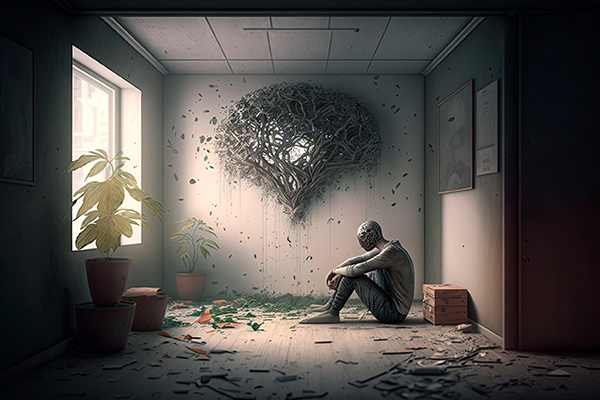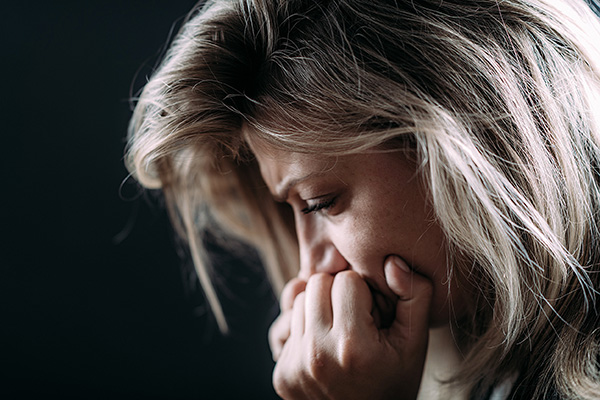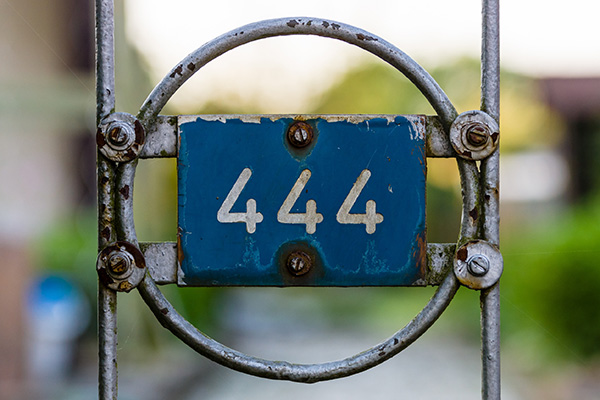self-help
Unstuck Your Life By Transmuting Your Origin Story
 Do you feel that no matter what you do, your life experiences seem to be stuck on repeat? Are you living the same scenario over and over with a different cast of characters? Or maybe even the same cast, but going through the same problems over and over with no change? If any of this sounds familiar, you may need to revise your origin story.
Do you feel that no matter what you do, your life experiences seem to be stuck on repeat? Are you living the same scenario over and over with a different cast of characters? Or maybe even the same cast, but going through the same problems over and over with no change? If any of this sounds familiar, you may need to revise your origin story.
We all have an origin story. It is a set of deeply held ideas and beliefs that shapes how we see ourselves and our place in the world. It is the story of that we constantly repeat when we talk about ourselves or think about our life experiences. Internally, we use it to define ourselves, and externally, we use it to present ourselves to others.
Our story of origin comes from family, early life experiences, and the choices we made about ourselves as we grew up. While it helps define us, it can also become a prison, limiting our growth and repeating unsatisfying patterns in what we manifest.
In my work as a psychic consultant, I often find in readings that many people are held back by their origin story without even realizing it. When we hold on too tightly to our chosen narrative, we become trapped in cycles that prevent us from evolving into the version of ourselves we truly want and deserve to be.
An origin story differs from a limiting belief in that it is more about the construction of our identity and personality – who we are and how we want to be in the world. It can be more difficult to identify and deconstruct because it is such a strong part of our personal identity. However, it is similar to limiting beliefs in that it is important to explore and become aware of it because it can hold us back and create very unsatisfying life experiences.
How To Embrace Your Shadow Self
 Most people tend to shy away from acknowledging their dark or “shadow” side when it comes to spirituality.
Most people tend to shy away from acknowledging their dark or “shadow” side when it comes to spirituality.
In fact, the tendency to avoid the uncomfortable aspects of the self is due in large part to our religious or spiritual background. Throughout history, most traditions have encouraged people to suppress, deny, or transcend their human flaws and shortcomings in favor of higher ideals such as purity, salvation, or enlightenment.
This reluctance to face the shadow within continues to this day, with modern spiritual and metaphysical communities often favoring light, love, and positivity while largely ignoring the messy, difficult, and painful aspects of the human experience.
But by avoiding the shadow within, we deny ourselves the opportunity for a deeper understanding of our soul’s purpose and untapped possibilities for personal and spiritual growth.
According to Carl Jung, the famous Swiss psychiatrist who pioneered the concept of the “shadow” in psychology, “one is not enlightened by imagining figures of light, but by making the darkness conscious.” Enlightenment isn’t about avoiding the shadow. Instead, it’s about facing it and integrating it into our being.
When we face the shadow within, we reclaim parts of ourselves that hold immense power, creativity, and insight. By delving into the deeper truths of our shadow selves, we can unravel the unconscious patterns that dictate our lives, allowing for true healing, transformation, and enlightenment.
Toxic Friendships: End It, Or Mend It?
 Like all relationships, friendships have their ups and downs, testing the bonds that bind us together.
Like all relationships, friendships have their ups and downs, testing the bonds that bind us together.
A true friend is someone who genuinely wants the best for you, celebrates your victories, and supports you through challenges. They offer encouragement, share your joys, and lend a sympathetic ear during difficult times.
The presence of true friends adds value to your life and fosters growth and positivity. You have a healthy friendship that thrives on mutual respect and care, where both parties feel uplifted and inspired to be their best selves.
In stark contrast, a toxic friend is often self-absorbed, putting their own needs and desires above all else. They manipulate situations to get what they want, with little regard for how their actions affect your happiness.
This type of friendship can feel draining, leaving you emotionally drained and questioning your self-worth. Instead of celebrating your achievements, a toxic friend may resort to jealousy or criticism, undermining your confidence.
Toxic friendships can deeply affect our emotional and mental well-being, often leaving us feeling drained and undervalued. These relationships are characterized by manipulation, constant criticism, and lack of support, creating an environment where one party consistently takes more than they give.
The dynamic can include jealousy, competition, or even emotional abuse, making it difficult to feel safe and authentic. Over time, toxic friendships can lead to diminished self-esteem and increased stress, underscoring the importance of recognizing and addressing these unhealthy connections.
What To Do When He Is Not Calling You
 When someone you like a lot doesn’t call or even ghosts you, it can really sting. The excitement of a new romance can quickly turn into self-doubt and frustration.
When someone you like a lot doesn’t call or even ghosts you, it can really sting. The excitement of a new romance can quickly turn into self-doubt and frustration.
This is when patience, trust in the bigger picture, and reclaiming your own power become really important.
Patience isn’t just about waiting; it’s about trusting that everything happens in its own time. When someone doesn’t call, it’s easy to panic and think they’re not interested or that you’ve messed up. But patience helps us trust life’s timing. What’s meant for you won’t slip away.
It’s not about sitting around hoping. It’s about realizing that the universe has a way of making things work, even when it doesn’t feel like it.
Trusting that everything happens for a reason helps you let go of the need to control the outcome of your romantic life. You find peace in knowing that what’s meant for you will come to you at the right time.
Trust that everything happens for your highest good. The universe has your back. If someone doesn’t call, maybe they’re right for you. Maybe the timing isn’t right, or there’s someone better just around the corner.
Trusting the universal flow for your highest good helps you let go of the need to control everything and focus on what you can control in life. Controlling how other people behave is not one of them.
A Quick Guide To Safer Online Dating
 Despite widespread skepticism, I still believe that online dating is one of the best ways to meet someone special, especially for those whose lifestyle limits their ability to meet other singles in their daily lives.
Despite widespread skepticism, I still believe that online dating is one of the best ways to meet someone special, especially for those whose lifestyle limits their ability to meet other singles in their daily lives.
Statistics back up the success of online dating. According to the Pew Research Center, for example, approximately 5% of Americans who are married or in a committed relationship met their partner online.
A study by the National Academy of Sciences found that more than one-third of marriages in the U.S. begin with online dating, and these couples report slightly higher levels of happiness than couples who meet through other means. In fact, Match.com reports that only 9% of women and 2% of men find relationships in clubs or bars.
Clearly, the Internet plays a crucial role in bringing people together!
However, it’s important to realize that no form of dating is completely risk-free. Meeting strangers online always carries some risk, but there are ways to minimize these dangers and protect yourself.
The reality is that most people who engage in online dating do so safely, which is why these platforms remain popular. Still, it’s wise for online daters to be aware of the potential risks and take precautions.
I know several friends and clients who have had unsettling or even frightening experiences with men they met online. For example, one friend found herself being followed home after a date by a man on a motorcycle. She acted quickly, running several red lights to lose him and eventually pulling over in front of a police station, where he fled. Another friend escaped a potentially dangerous situation by convincing a man to let her return to a restaurant to retrieve her phone, where she asked the manager to call the police.
Letting Go Of Guilt
 We all like to be seen as good people, and it can be deeply unsettling when others perceive us otherwise. When we find ourselves in a disagreement with a dear friend or colleague and take the blame for something we’re not responsible for, it’s natural to feel unhappy.
We all like to be seen as good people, and it can be deeply unsettling when others perceive us otherwise. When we find ourselves in a disagreement with a dear friend or colleague and take the blame for something we’re not responsible for, it’s natural to feel unhappy.
Spirit teaches that while it’s important to own our actions and the roles we play in conflict, guilt only serves to amplify feelings of remorse. If we allow guilt to fester, we may begin to believe that we are “bad” people who do not deserve happiness and success.
This is far from the truth. We are human, and human beings have the ability to change. Our actions may not always be right, but that doesn’t mean we are inherently bad or deserving of punishment.
Making mistakes is part of being human, and sometimes we need to adjust our responses, especially in challenging situations, in order to grow and improve. Spirit suggests that this is a much healthier perspective.
However, taking this “healthy approach” is often easier said than done. We’ve grown up in a world where elders, peers, and society define what is good and bad – even when they’re not always right. This can lead us to judge ourselves harshly and feel unnecessary guilt.
Many traditional spiritual teachings emphasize the importance of forgiveness, both of oneself and of others. In Christianity, for example, the concept of repentance is central; believers are encouraged to confess their sins, seek divine forgiveness, and then release their guilt, trusting that God’s grace has absolved them.
